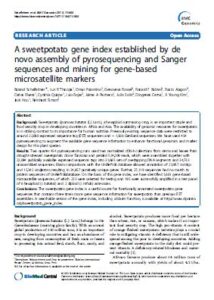This study presents processes and success stories that emerged from Africa RISING’s Research for Development project in the Ethiopian Highlands. The project has tested a combination of participatory tools at multiple levels, with systems thinking and concern for sustainable and diversified livelihoods. Bottom-up approaches guided the selection of technological interventions that could address the priority farming system challenges of the communities, leading to higher uptake levels and increased impact. Joint learning, appropriate technology selection, and the creation of an enabling environment such as the formation of farmer research groups, the establishment of innovation platforms, and capacity development for institutional and technical innovations were key to this study. The study concludes by identifying key lessons that focus more on matching innovations to community needs and geographies, systems orientation/integration of innovations, stepwise approaches to enhance the adoption of innovations, documenting farmers’ capacity to modify innovations, building successful partnerships, and facilitating wider scaling of innovations for future implementation of agricultural research for development projects.
Research for development approaches in mixed crop-livestock systems of the Ethiopian highlands
Citation: Mekonnen, K., Thorne, P., Gebreyes, M., Hammond, J., Bezabih, M., Kemal, S., Tamene, L., Agegnehu, G., Yahaya, R., Gebrekirstos, A., Thai, M., Sharma, K., Adie, A. and Whitbread, A. 2023. Research for development approaches in mixed crop-livestock systems of the Ethiopian highlands. Frontiers in Sustainable Food Systems 7:1080725.
2023-06-05
AFRICA, Eastern Africa
ETHIOPIA
journal_article


